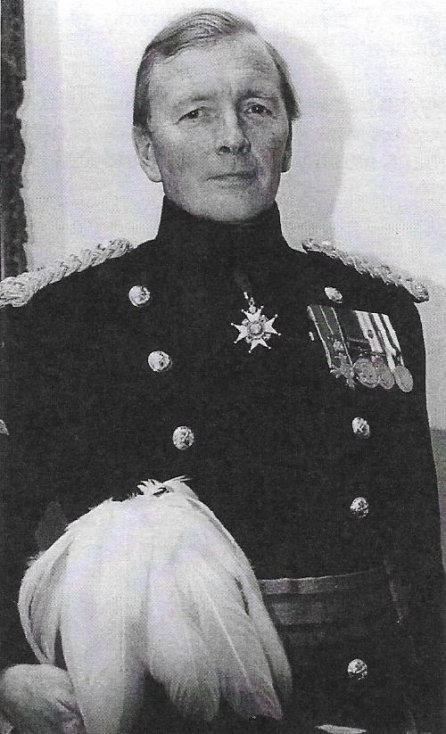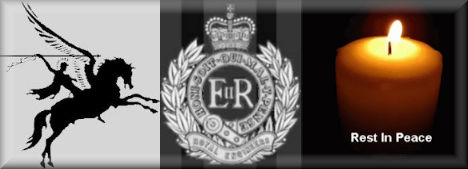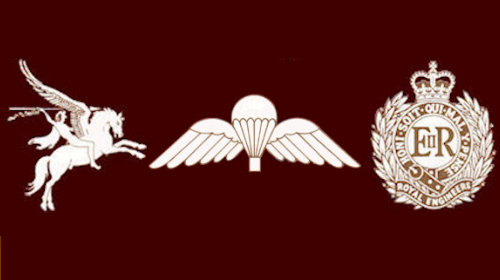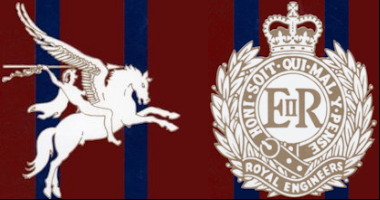
Roll of Honour

Major General Geoffrey Field CB CVO OBE - 30th Nov 1941 - 1st Feb 2019
He was born in Edinburgh on November 30 1941. His father served in the Scots Guards in the Second World War. Young Geoffrey (always known as Geoff) was educated at Daniel Stewart's College before attending RMA Sandhurst, where he was one of three Sappers to pass out in the top 10.
As a younger man, he represented Sandhurst and Shrivenham at cross-country running, swam in the Army Championships and was the Berlin Brigade pistol champion. Later on he played golf for the Royal Engineers Golfing Society, of which he was president.
Commissioned in 1959, he was posted to 38 Field Squadron RE in Berlin shortly after the Wall had gone up and he had some exciting times carrying out reconnaissance patrols in the Russian Sector. A posting to 9 Independent Parachute Squadron included exercises in Libya and was followed by a staff appointment at HQ Royal School of Military Engineering. He was then second-in-command of 59 Field Squadron RE in Singapore. The Squadron supported 3 Commando Brigade and, after passing the commando course, he was awarded his green beret.
He undertook staff training at the Royal Military College of Science Shrivenham and the Australian Staff College before being posted to the Master General of the Ordnance's Secretariat at the MoD. He was appointed MBE at the end of his tour.
After commanding 59 Independent Commando Squadron — the tour included deployment to Northern Ireland, and then to Coventry during the firemen's strike — he served on the directing staff at Shrivenham. In 1980 he assumed command of 36 Engineer Regiment, which initially supported the UK Mobile Force with roles on the flanks of NATO. Halfway through his command, however, it was re-roled to support 5 Infantry Brigade in the Falklands conflict.
He was part of the British team at the signing by the Argentineans of the formal surrender document. The end of hostilities marked the beginning of a huge operation to put the Falkland Islands community back on its feet and provide for its future security.
Port Stanley had to be made safe once more, its airfield, services and outlying settlements restored and the battle areas, littered with unexploded missiles, bombs and ammunition, cleared.
The day after the surrender, he personally neutralised a device consisting of three anti-tank mines coupled with two large propane gas cylinders. He was appointed OBE in 1983 at the end of his command.
In 1983, he returned to the MoD as Assistant Director Defence Policy. Two years in command of 11 Engineer Group was followed by an appointment as Director Defence Programmes, responsible for advice on the overall balance of the Defence Budget. After a year, he was promoted to Director General Logistic Policy.
 |
The Logistic Support Review called for an adroit mixture of firmness and tact as it led to the demise of the Royal Corps of Transport, the Royal Army Ordnance Corps, the Royal Pioneer Corps and the Army Catering Corps, which were all subsumed into the newly formed Royal Logistic Corps. In 1993 Field, who had made a notable contribution to the success of this major rationalisation, was appointed CB. His service for 12 years was recognised by his appointment as CVO. He was Colonel Commandant Royal Pioneer Corps from 1991 to 1993 and of the Royal Logistic Corps from 1993 to 1996. Geoff Field married, in 1966, Janice Olsen, who survives him with their son and twin daughters. |












